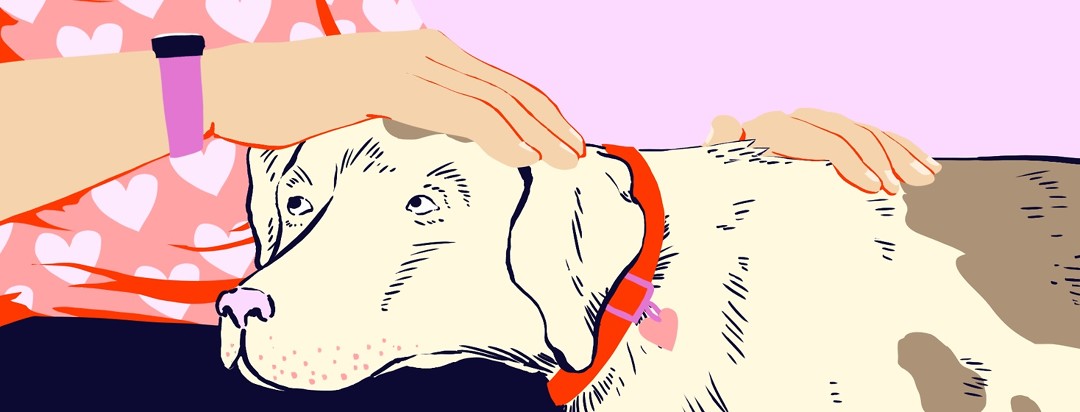What Animals Can Give: Animal Therapy to Cope with Dementia
I am amazed even today, a couple years later, how perceptive, caring, and loving animals are to those who are sick. My daughter had surgery recently and her cat knew when she was sore, feeling unwell, and sad. The cat would snuggle on her legs away from her incision. I saw similar incredible things with dogs and my dad as the dementia was getting worse, even though his wounds were not visible like a surgical incision is.
Getting my dad into a nursing home
Where our family lives, there is a process to get your loved one into a nursing home. My mom struggled with letting go of dad to live in a safer place. Dad needed a nursing home bed but one was not available. The only thing available was a retirement home bed and thankfully, it was in the city where they lived.
The owner had a mixed breed, large, gentle, black dog. In the midst of the activity of moving dad to his new home, the dog took to dad’s side. The room was small and we were literally tripping over the dog at first. I stood back watching. Dad recognized that something was going on. He still had some verbal skills then but didn’t understand what was happening. The dog did, though. The dog sat at dad’s side. The dog laid at dad’s side. The dog would not leave dad’s side. The dog sensed Dad’s fear. Normally, the dog comes on command. The owner commanded. The dog wouldn’t come. The owner commanded several more times, again, the dog wouldn’t come. The dog was not leaving dad’s side. The owner said he’d never seen his dog do that. He had to physically remove the dog from dad’s side so we could spend some time with dad. I was struck by what the dog perceived while we were busy with the ‘tasks’. I will never forget that dog and the dedication she gave to someone she just met in distress.
The power of pet therapy
A couple of weeks later, dad was in his new home. After a few months there, dad no longer had verbal skills, but his non-verbal skills were still quite expressive. I had no idea nursing homes allowed family dogs to visit. As long as a dog is gentle, quiet, and was up-to-date on vaccines, they can visit. My brother has just such a dog, Dixie. The nursing home had rooms in the common area where family members could meet with their loved one in a quiet space. These beautiful rooms were glass fronted. When Dixie would visit the nursing home, many of the residents would flock to the glass to see her.
One day, in particular, there were so many folks at the glass to see her that staff had to move them away. I was amazed at how the dog created that connection to people; how it triggered some memory in so many of them. When dad would see Dixie, he lit up! His smile was huge. On the lighter side, Dad would call Dixie by name when he saw her but was confused about who the rest of us were. Somewhere in dad, there was a pleasure, a happiness, in seeing Dixie. A piece of dad that was still in there. Dixie brought that out of dad. Dixie gave us memories of dad that were happy. I’ll never forget that smile he had every time when saw her.
Although I never gave much thought to animal therapy before, I certainly do now. It is heartwarming and amazing to watch. It not only helps folks with dementia, it helps those of us who love them.

Join the conversation